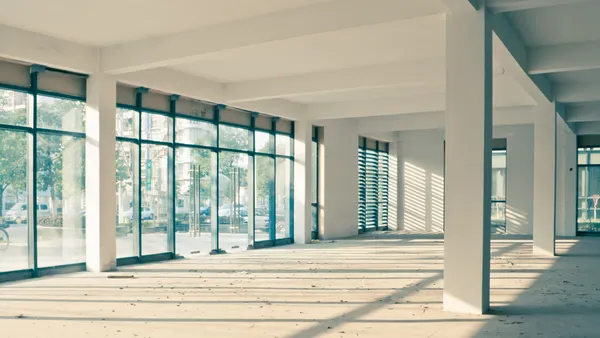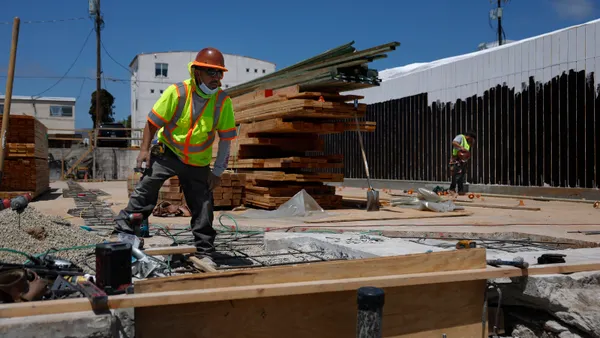Alphabet-owned Sidewalk Labs is promising a bright future for Toronto's city dwellers by solving today's urban pain points like congestion, affordable housing, long commutes and extreme weather.
The company plans to address these issues with Quayside, its futuristic city to be built on Toronto’s waterfront. The company, which hopes to secure $38 billion in investments by 2040, and its plans for the Toronto community are designed to disrupt five key pillars of a smart city: job creation and economic development; housing affordability; sustainability and climate-positive development; new mobility; and urban innovation.
"We want to emphasize the things that makes cities great: the people, the density, the creative friction; while trying to reduce the challenges of urban growth," Sidewalk Labs told Smart Cities Dive in a written statement.
Despite the innovation represented in these plans, Sidewalk Labs' futuristic city visions have also stirred up a fair amount of controversy and backlash, particularly over privacy concerns. In response to that pushback, Sidewalk Labs recently pledged not to sell the personal data that it collects at its Quayside project in Toronto, or leverage the data for advertising. The company said that each use of technology would be for a "beneficial purpose."
But many opponents remain concerned about Sidewalk Labs' seemingly unfettered access into people's lives. And a recent article by The Globe and Mail seemed to compound those fears by unveiling a confidential document from 2016 that details how Sidewalk Labs' planned to track the movements of residents and goods, and even outlined how residents would be granted access to certain spaces based on how much data they provide, or rewarding them for "good behavior."
However, a poll from Environics Research released by the Toronto Region Board of Trade revealed that 54% of Toronto residents support the Quayside project. The rate of opposition stands at 13% among the greater Toronto area and 17% in the city.
Among its many unique elements that have proven to be less controversial than data collection is the plan to build with mass timber. The material promises to boost affordability, construction timelines and climate change mitigation. Sidewalk Labs wants to include a mass timber factory, which could be used to help "catalyze an industry" of sustainable building across the globe, the company said in a statement. The material can sequester or remove carbon from the atmosphere. In fact, a piece of land with no building on it has a higher carbon footprint than land with a cross-laminated timber (CLT) building, according to The Climate Trust.
Equity was also woven into their futuristic smart city. Sidewalk Labs plans to encourage "inclusive growth" at Quayside with initiatives like opening public spaces to be enjoyed day and night, and during any season "thanks to new methods to mitigate weather." Other plans for inclusivity include building a "neighborhood for everyone" with its new construction methods that will lower the cost of housing and retail space, Sidewalk Labs said in a statement.
The project aims to create jobs and boost the economy with advanced energy systems that can help reduce greenhouse gas emissions and provide a housing program at below-market rates, according to Sidewalk Labs. They also plan to expand public transit and rethink street design to discourage car ownership, in addition to providing a research center that focuses on urban innovation and a tech venture fund.
“Our vision is to build the most sustainable, affordable and inclusive neighbourhood in Toronto," the company said. "With unprecedented access to green space and public parks. Fast, reliable and affordable modes of transit, reducing commute times and climate impacts."
The company is forging ahead with its plans and will undergo a formal evaluation and public comment period, where many of the concerns surrounding Sidewalk Labs' plans are likely to be addressed. The review will be completed on March 31, 2020.
Overall, Sidewalk Labs plans to learn from Quayside in part for future endeavors. "We view this very much as a learning experience for us as a flagship project," Head of Urban Systems Rit Aggarwala told Smart Cities Dive.
For now, Sidewalk Labs has to wait and see if the public is ready for such an innovative — albeit disruptive — plan.










